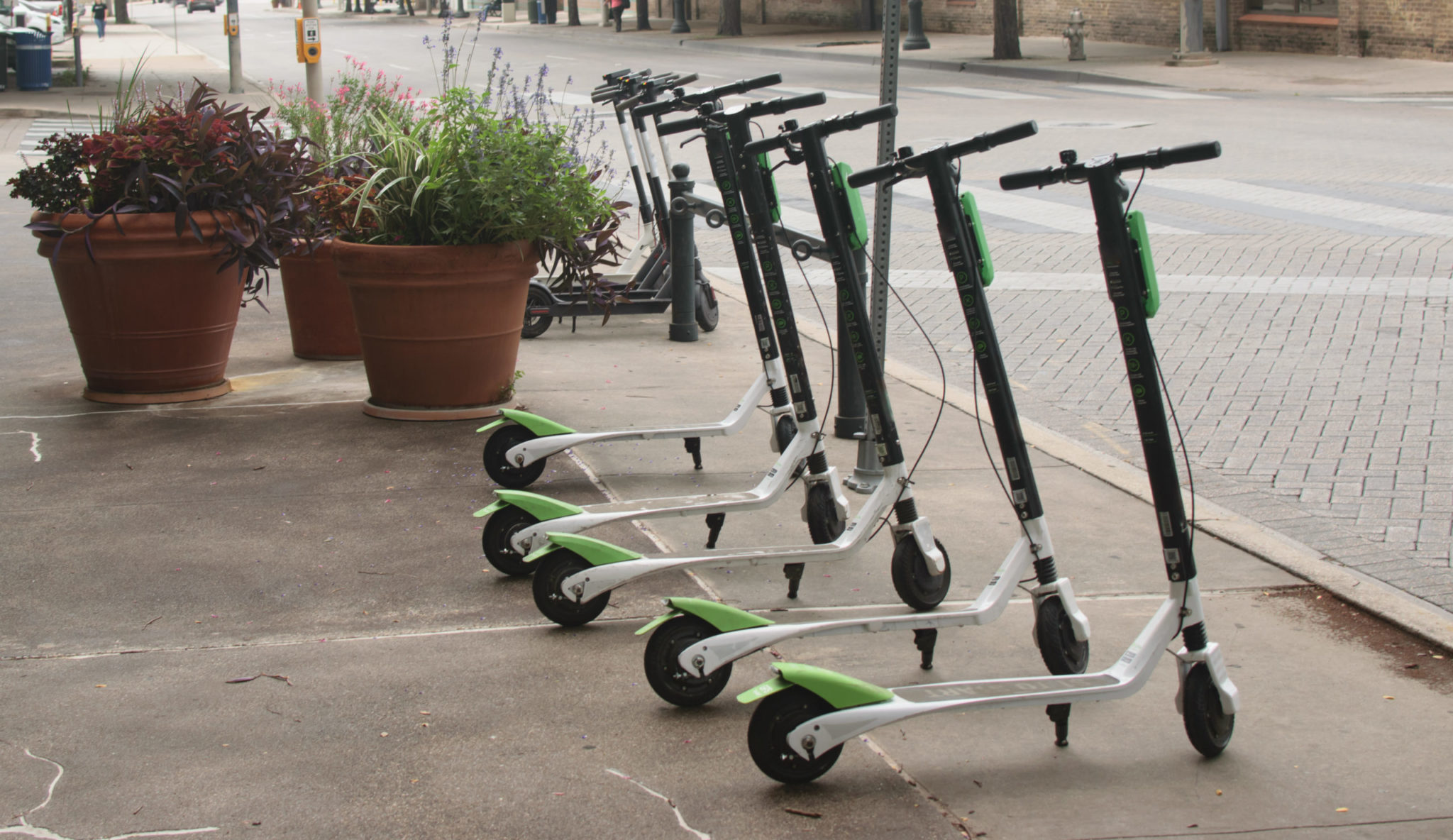Electric scooters may be a compact, rapidly-growing, environmentally friendly and relatively inexpensive means of cruising through city cores, but that doesn’t mean e-scooters aren’t rife with controversy.
Some cities around the world have banned the battery-powered scooters for a number of safety reasons. Toronto is one of those cities. In fact, Toronto City Council voted unanimously in 2021 to opt-out of Ontario’s province-wide electric scooter pilot program.
This has left a strange and dangerous dichotomy for Torontonians: Electric scooters can legally be sold in shops in and around the city, but they are illegal to actually ride within the city in any public space. And their illegality hasn’t stopped citizens from scooping them up (and riding them) at an ever-burgeoning pace. Police are often powerless to stop them.
Ride-share programs are also in place in many of the province’s other municipalities in which they are legal to ride.
Ontario’s Ministry of Transportation’s e-scooter pilot program will be assessed until November 2024, after which time a decision will be made on their future on Ontario streets.
Why did Toronto ban e-scooters?
In May of 2021, the City of Toronto released an official report on electric scooters, and their reasons for opting out of the program due to safety concerns.
“City staff … found that e-scooters provide inadequate consumer safety standards and that there is a lack of protections for pedestrians,” reads the news release.
A review of injury studies from other cities around the world was assessed, and staff consulted with Toronto Public Health, jointly determining that “passing on the e-scooter pilot would help prevent potentially serious injuries on Toronto streets and sidewalks during a time when hospitals and City resources are already both burdened and strained in response to COVID-19.”
Toronto is not alone. Amsterdam, Boston, Edinburgh, Honolulu, Philadelphia, and Sydney all prohibit the use of e-scooters, while Manhattan, Chicago and Copenhagen have banned the use of “shared e-scooter” programs.
Some of the studies cited include a German study in which e-scooters were noted to be 400 percent more likely than bicycles to injure pedestrians; and an Austrian study that found that 34% of e-scooter riders rode illegally on the sidewalk, endangering others.
A study by the Journal of the American Medical Association found a 600% increase in emergency room visits due to e-scooter accidents in the five-year period ending in 2019. Most common injuries treated include:
- Head injury (40%)
- Fractures (31.7%)
- Contusions, sprains and lacerations (27.7%)
Because of the complete vulnerability of an e-scooter rider on city streets, injuries are quite common, in collisions with vehicles, bicycles, objects and pedstrians, as well as falls off the scooter.
Ride-share programs have had their own problems , with abandoned scooters often found strewn across city streets and sidewalks causing trip and fall hazards.
The ban in Toronto is being hailed as a huge victory, in particular, for people with disabilities, who are at greatest risk of injury from the devices if they’re ridden or left lying on sidewalks.
What are the rules for riding an electric scooter in Ontario?
Despite the potential risks and dangers, the province is continuing its pilot program in other jurisdictions, and the laws and regulations include:
- Riders must be at least 16 years of age
- Anyone under the age of 18 must wear a helmet
- Maximum speed of 24 km/h
- E-scooter must have a horn or bell, lights on front & back, plus reflective material on sides
- No passengers or cargo allowed
- Must follow all Highway Traffic Act rules of the road that apply to bicycles
Does car insurance cover electric scooters?
“If you are operating an e-scooter and are injured in an accident with a motor vehicle, you have the right to claim accident benefits, in the same way as pedestrians and cyclists. You would also have the right to sue the at fault driver in a tort action”, says personal injury lawyer Brian A. Horowitz.
However, as Mr. Horowitz points out, insurance coverage becomes much more complicated if you were the victim of the negligence of an e-scooter operator and suffer injury. If you sue the at fault operator, would there be insurance coverage to protect you?
“Unfortunately, the e-scooter operator’s automobile policy would not apply,” says Mr. Horowitz. “Typically, homeowner’s policies contain provisions which would protect the e-scooter operator in this circumstance. However, one would have to read the provisions of the relevant homeowner’s policy to be certain.”
Meanwhile, in Toronto, the troubling double-standard continues, as e-scooters continue to be scooped up from retail stores in record numbers, despite their ban in the city. This creates an even more challenging situation if an e-scooter accident occurs within the city boundaries.
“Conceivably,” says Mr. Horowitz, “there may not be insurance coverage to protect the operator and the innocent victim would be left in a very precarious position”.
If you or a loved one are injured in an electric scooter accident, within or outside of the City of Toronto, call the professionals at Horowitz Injury Law immediately for a free consultation of your case. For nearly 35 years, we have been ensuring that riders, drivers and pedestrians in any traffic accident get the compensation they deserve. Call now: 416-925-4100.




